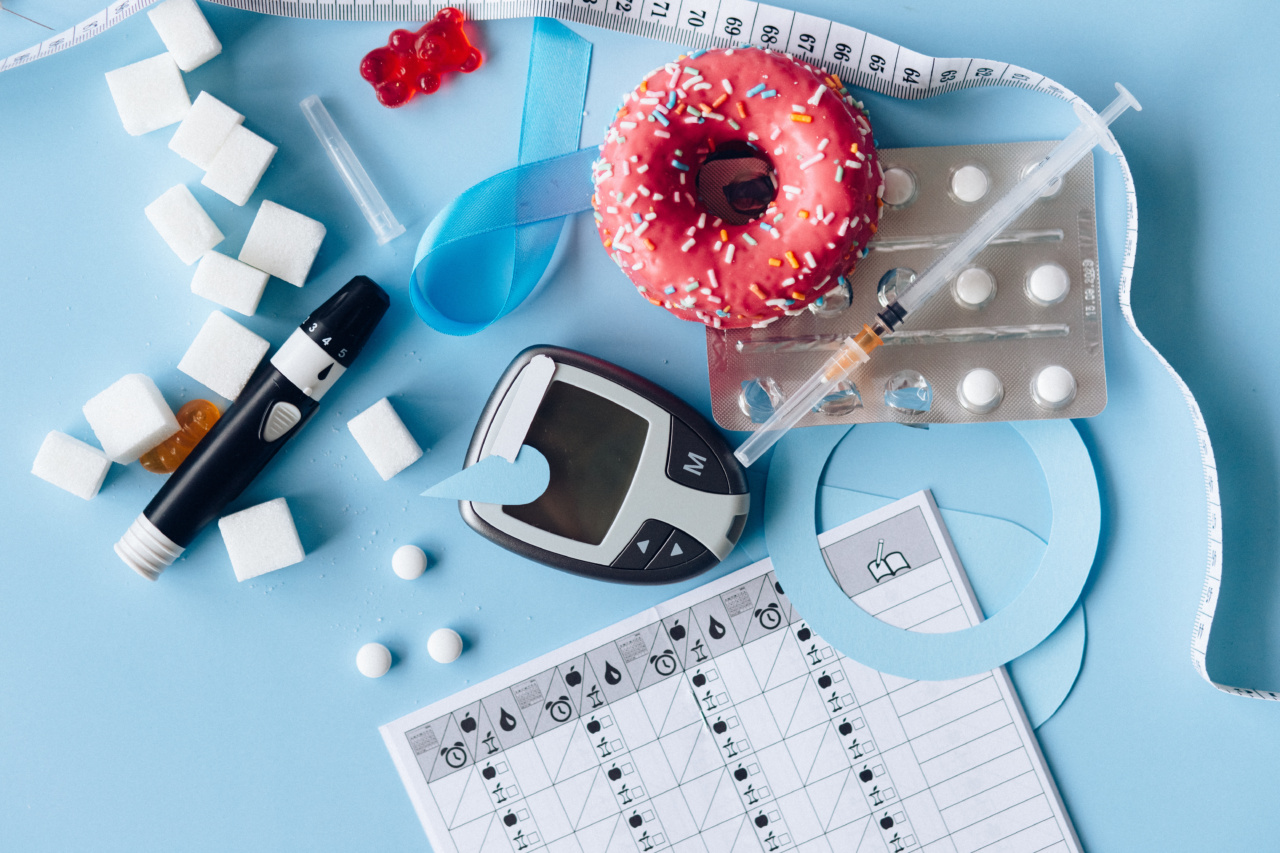Diabetes is a chronic condition that affects millions of people worldwide. It occurs when the body either does not produce enough insulin or cannot effectively use the insulin it produces. Managing diabetes is crucial to lead a happier and healthier life.
By making certain lifestyle changes and following a proper treatment plan, individuals with diabetes can successfully control their blood sugar levels and reduce the risk of complications.
1. Regular Blood Sugar Monitoring
One of the key aspects of managing diabetes is regular blood sugar monitoring. Monitoring your blood sugar levels helps you understand how your body responds to different foods, physical activity, and medications.
It allows you to make adjustments to your diet, exercise routine, and medication dosage accordingly. By maintaining your blood sugar levels within the target range, you can prevent both short-term and long-term complications of diabetes.
2. Healthy Eating Habits
A balanced and nutritious diet plays a vital role in managing diabetes. It is essential to focus on consuming a variety of nutrient-dense foods.
Incorporating whole grains, lean proteins, fruits, vegetables, and healthy fats into your meals can help stabilize blood sugar levels. It is important to limit the intake of sugary drinks, processed foods, and foods high in saturated fats. Portion control is also crucial to prevent spikes in blood sugar levels.
3. Regular Physical Activity
Engaging in regular physical activity has numerous benefits for individuals with diabetes. Exercise helps improve insulin sensitivity, allowing cells to use glucose more efficiently.
It also aids in weight management, lowering blood pressure, reducing the risk of heart disease, and improving overall well-being. Aim for at least 150 minutes of moderate-intensity aerobic activity per week, along with muscle-strengthening exercises twice a week.
4. Medication and Insulin Management
Depending on the type and severity of diabetes, medication and insulin management may be necessary. It is crucial to take prescribed medications as directed and at the appropriate times.
If insulin is required, understanding proper administration techniques and monitoring blood sugar levels becomes even more important. Regular check-ups with healthcare professionals will ensure that the prescribed treatment plan is effective and adjustments are made as needed.
5. Stress Management
Chronic stress can have a negative impact on blood sugar levels. Learning effective stress management techniques can help individuals with diabetes maintain better control over their condition.
Engaging in activities like meditation, deep breathing exercises, yoga, or pursuing hobbies can help reduce stress levels. Additionally, seeking support from friends, family, or joining support groups can provide emotional support and guidance.
6. Regular Medical Check-ups
Regular medical check-ups are essential for individuals with diabetes. Scheduled appointments with healthcare professionals help monitor overall health, detect any complications early on, and make necessary adjustments to the treatment plan.
These check-ups may involve tests to measure blood sugar levels, cholesterol, blood pressure, kidney function, and more. Maintaining a proactive approach towards healthcare is crucial for long-term well-being.
7. Education and Self-Awareness
Education plays a crucial role in managing diabetes effectively. Understanding the condition, its causes, and its impact on the body empowers individuals with the knowledge to make informed decisions about their lifestyle and treatment options.
Self-awareness involves recognizing the signs and symptoms of fluctuations in blood sugar levels and taking appropriate action. By being proactive and educated, individuals can better control their diabetes and prevent potential complications.
8. Adequate Sleep
Getting enough high-quality sleep is important for everyone, including those with diabetes. Lack of sleep results in hormonal imbalances, increased stress levels, and difficulty in managing blood sugar levels.
Aim for seven to eight hours of restful sleep each night. Establishing a bedtime routine, creating a soothing sleep environment, and prioritizing sleep can contribute to better overall diabetes management.
9. Support Network
Having a strong support network is crucial in managing diabetes. Friends, family, and healthcare professionals can provide the necessary encouragement, guidance, and understanding throughout the journey.
Communicate with your loved ones about your needs, educate them about diabetes, and share any challenges or concerns you may have. Joining diabetes support groups or online communities can also provide valuable insights and a sense of belonging.
10. Consistency and Patience
Managing diabetes is a lifelong commitment that requires consistency and patience. It is important to follow the recommended treatment plan, make lifestyle modifications, and incorporate healthy habits into your daily routine.
Be patient with yourself as you navigate through the ups and downs of managing diabetes. Celebrate small victories and seek help when needed. Remember, managing diabetes is a continuous effort that leads to a happier and healthier life.































